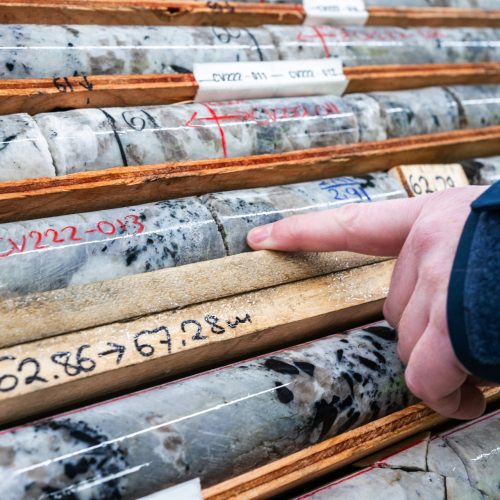Volkswagen AG has solidified its commitment to securing critical raw materials for its electric vehicle (EV) production by acquiring a 9.9% stake in Patriot Battery Metals Inc., a Canadian lithium exploration and development company. This investment, valued at C$69 million (approximately $48 million), aligns with Volkswagen’s broader strategy to ensure a stable supply of battery-grade lithium, a cornerstone of its EV ambitions.
Key Details of the Agreement:
- Strategic Stake Acquisition:
- Volkswagen purchased shares of Patriot Battery Metals at C$4.42 per share, representing a 66.8% premiumover the company’s prior closing price.
- This premium reflects the strategic value of Patriot’s assets, particularly its potential to support Volkswagen’s EV battery needs.
- Lithium Offtake Agreement:
- Patriot will supply Volkswagen with 100,000 tonnes of spodumene concentrate annually for a ten-year term.
- The concentrate will be delivered to Volkswagen’s PowerCo SE subsidiary, which oversees the company’s battery production and development efforts.
- Collaboration on Lithium Development:
- Both companies have signed a memorandum of understanding (MoU) to explore further collaboration on developing the Shaakichiuwaanaan Project in Quebec.
- Volkswagen has expressed interest in providing additional financing for the project in exchange for increased offtake rights.
The Importance of Patriot Battery Metals:
- Key Asset – Corvette Property:
- Patriot’s flagship project, the Corvette Lithium Project in Quebec, is one of the most promising spodumene sources in North America, containing high-grade lithium pegmatites.
- Located in a mining-friendly jurisdiction with strong infrastructure, the Corvette Project positions Patriot as a critical player in the North American EV battery supply chain.
- Support from Quebec’s Mining Ecosystem:
- Quebec is emerging as a hub for battery materials, supported by government policies and investments aimed at fostering a vertically integrated EV supply chain.
Strategic Implications for Volkswagen:
- Securing Critical Lithium Supply:
- Lithium is a fundamental component in lithium-ion batteries used in EVs. The demand for lithium is expected to increase substantially as EV adoption accelerates globally.
- By investing in Patriot Battery Metals, Volkswagen ensures access to a long-term, reliable source of battery-grade lithium.
- North American Expansion:
- This partnership aligns with Volkswagen’s efforts to localize its EV supply chain in North America, particularly in light of incentives under the U.S. Inflation Reduction Act.
- The development of Volkswagen’s planned battery cell factory in St. Thomas, Canada, with an annual production capacity of 90 GWh, further underscores the strategic importance of North America to its global operations.
- Strengthening PowerCo SE:
- PowerCo SE, Volkswagen’s dedicated battery subsidiary, aims to produce batteries for up to 1.5 million EVs annually by 2025. This agreement strengthens PowerCo SE’s ability to meet its production goals while reducing dependence on external supply chains.
Broader Market Implications:
- Lithium Market Dynamics:
- With lithium prices declining from their 2022 highs, Volkswagen’s investment reflects confidence in long-term demand growth for EVs and energy storage systems.
- Patriot Battery Metals’ valuation of approximately C$625.8 million highlights the enduring strategic importance of companies with high-quality lithium reserves.
- Geopolitical and Economic Context:
- This partnership bolsters North America’s role in the global EV supply chain, reducing reliance on lithium sources in Asia and Africa.
- Volkswagen’s investment also signals increased competition among automakers to secure upstream resources critical for electrification.
Conclusion:
Volkswagen’s investment in Patriot Battery Metals is a strategic move to ensure a robust supply of battery materials as the automotive industry undergoes rapid electrification. By securing a stake in one of North America’s leading lithium development companies, Volkswagen not only enhances its resource security but also positions itself as a key player in the evolving EV landscape.
This collaboration underscores the importance of vertical integration and localized supply chains in meeting the growing global demand for EVs. The partnership could serve as a model for other automakers navigating similar challenges in the transition to electric mobility.





